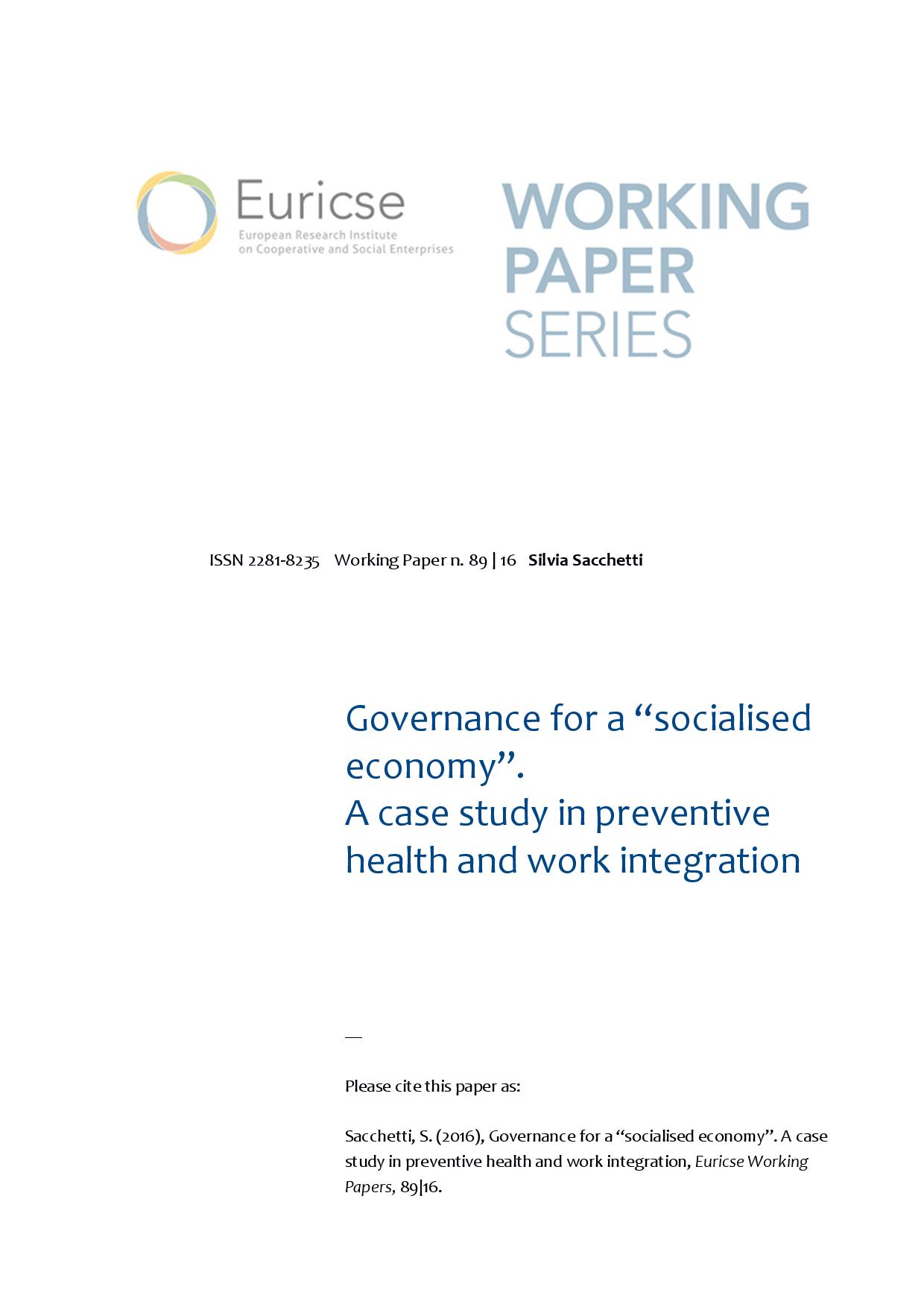WP 89 | 16 Governance for a “socialised economy”. A case study in preventive health and work integration
This work is motivated by the question of how organisational governance can address the needs of vulnerable groups. This paper offers a conceptual reflection on how the production of complex health-related services, such as aspects of preventive psychiatric illnesses, can be governed to the benefit of users and communities society more broadly.
The analysis is applied to a consortium of twenty-two social enterprises (SEs), with worker membership, located in Italy. The governance model adopted by the consortium is of particular interest since it pioneered solutions based on the combination of preventive health and work integration services. The case, specifically, allows to illustrate and analyse interdependencies amongst multiple publics, and how these are reflected by the governance model. Specifically, the findings suggest that central to the success of the model in meeting such challenges are: a) the integration of different but complementary organisations and competencies, including health, social, and production competences; b)a mix of interdependent governance solutions, each activating different types of publics and social capital; c) membership, through which workers partake in decision-making; d) formal fiduciary duties between vulnerable publics and members complemented by bonding and bridging social relations; e) the integration of community assets as inputs into the process, and the creation of societal outputs in terms of employment, social integration and cohesion.

